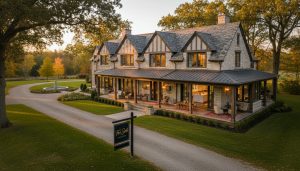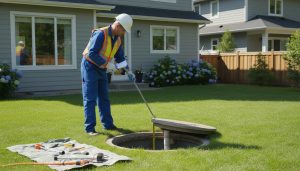How old should a house be for me to buy it
safely?
Want to avoid a money pit? How old should a house be before you buy it — and what to check first?
Quick answer
There’s no magic age. Buy based on condition, not birthday. A 100-year-old house can be safer than a 10-year-old one if it’s been maintained, upgraded to code, and inspected by pros.
Why age matters — and why it doesn’t
Age is a shortcut. It signals likely problems: original plumbing, old wiring, worn roof, lead paint, asbestos, outdated HVAC. But age alone doesn’t determine safety or value.
What really matters:
- Structure: foundation, framing, settlement cracks
- Roof: age, leaks, replacement history
- Electrical: knob-and-tube, inadequate breakers, AL wiring
- Plumbing: galvanized vs. copper or PEX; sewer line condition
- HVAC: efficiency, service records
- Permits & renovations: legal upgrades vs. DIY risks
Practical rule of thumb (actionable)
Use age as a trigger, not a verdict.
- 0–15 years: fewer systems to replace, easier financing, lower immediate maintenance. Still inspect for builder shortcuts.
- 15–50 years: likely mid-term replacements needed (roof, HVAC, electrical panel). Budget 5–15% of purchase price over next 5–10 years for updates.
- 50+ years: expect system upgrades and possible structural work. If well-maintained and updated, it can be great value — but get a very detailed inspection.

Step-by-step checklist before you buy (do this every time)
- Hire a certified home inspector — not a friend. Ask for thermal imaging and moisture testing.
- Get specialized inspectors if red flags appear: structural engineer, chimney, sewer camera, electrical expert.
- Request maintenance records and permit history.
- Estimate renovation and replacement costs. Add a 10–20% contingency.
- Check insurance availability and costs — older homes can be costly or restricted to insure.
- Consider age-related financing — some lenders limit loans on very old homes without major updates.
Common buyer concerns — answered
Q: Will an older house cost more to insure? A: Often yes. Insurers price for roof, wiring, plumbing, and building materials.
Q: Can I finance a 100-year-old house? A: Usually yes if systems meet lender standards. Expect stricter conditions or required repairs.
Q: Is historic charm worth the risk? A: If you value character and can budget for upgrades, yes. If you want hands-off ownership, choose newer construction.
Bottom line
Ignore fear-based rules like “never buy over X years.” Focus on condition, inspections, upgrade history, permits, and a realistic repair budget. That approach keeps you safe, reduces surprises, and protects resale value.
For a fast, clear assessment of any property type — condo, townhouse, detached, or heritage house — call a local expert who inspects deals like a business. Contact Tony Sousa, local realtor and market strategist, at tony@sousasells.ca or 416-477-2620 for a no-nonsense evaluation and next steps: https://www.sousasells.ca
Keywords: property types, how old should a house be, buy house safely, age of home, home inspection, renovation costs, real estate agent





















